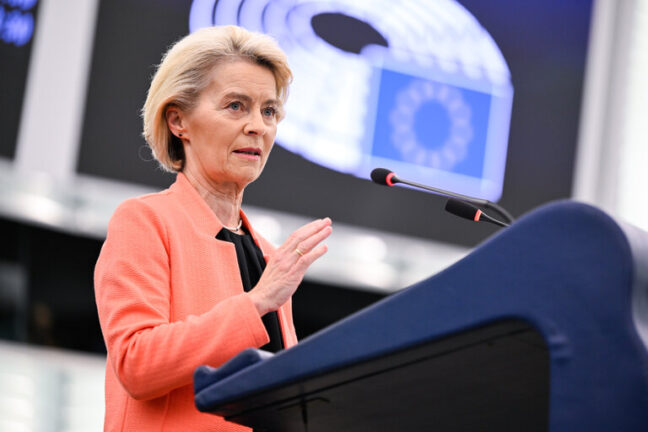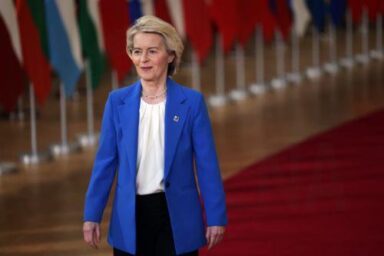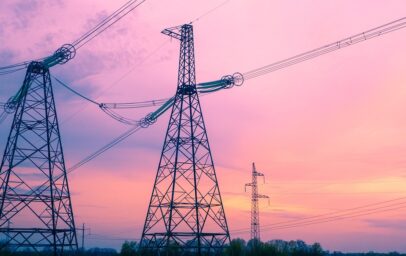European Commission President Ursula von der Leyen has defended the trade agreement she helped broker with US President Donald Trump. In an op-ed for the Spanish daily El Mundo, the Commission president acknowledged the deal was not flawless. But emphasised that it had prevented a broader trade war which would only have delighted Moscow or Beijing.
In the opinion piece, Ms von der Leyen explained the accord established a flat 15 per cent tariff on nearly all EU products—including cars and pharmaceuticals—while excluding aircraft components. She also highlighted the importance of diversifying trade partnerships with countries such as Switzerland, the UK, Mexico, as well as the Mercosur bloc in South America.
That has not shielded the deal from criticism, either at the start of August when it was first announced or now. On Friday, COPA-COGECA, the largest farming interest group, slammed the agreement for, in its view, sidelining agriculture in favour of industrial concerns at a time when producers are already wrestling with rising prices and tougher competition. When the deal was first announced in late July, some European leaders argued the executive should have called President Trump’s bluff by invoking the EU’s anti-coercion instrument—known informally as the “bazooka”, a tool designed to counter economic pressure tactics through potential retaliatory measures. Instead, EU representatives seemed visibly relieved to secure a deal just days before a far higher – 30 per cent tariff – would have come into effect.
The arguably cautious approach underscores wider concerns about the EU’s ability to assert itself on the global stage—concerns that were again voiced by Mario Draghi.
You might be interested
Evaporation
On Friday, the former prime minister of Italy and ex-European Central Bank president—the author of a landmark EU reform and close aide to von der Leyen—weighed in. Speaking at the annual forum in Rimini, Italy, he pulled no punches, describing 2025 as the year the “illusion of the EU’s geopolitical influence evaporated.” Mr Draghi argued that economic strength alone no longer guarantees political power, noting that the EU has increasingly found itself acting as a “marginal spectator” in crises from Ukraine to Gaza. The warning echoed the central message of his report: in effect, ‘adapt’ or die.
In his speech, he emphasised that the European Union is now poorly prepared in a world where geopolitical and economic power dynamics are shifting. But he also warned that dismantling European integration in favour of national sovereignty was not the answer and would leave individual countries even more vulnerable to global powers. The former central bank head also cautioned against relying on past successes where a re-evaluation was necessary. In his view, one favourable factor is that the EU has been able to adapt at key inflection points in the past.
Tough negotiations ahead
As the EU navigates these complex challenges, the trade deal with the US represents both a short-term victory and a reminder of the broader reforms required for the bloc to maintain its influence and stability in an increasingly volatile enviornment. The recent Multiannual Financial Framework reflects this urgency, introducing more flexible funding and ]sharply favouring competitiveness. Yet resistance—both political and economic, and varying by sector—underscores how fragile consensus remains even as the EU seeks to adapt.











